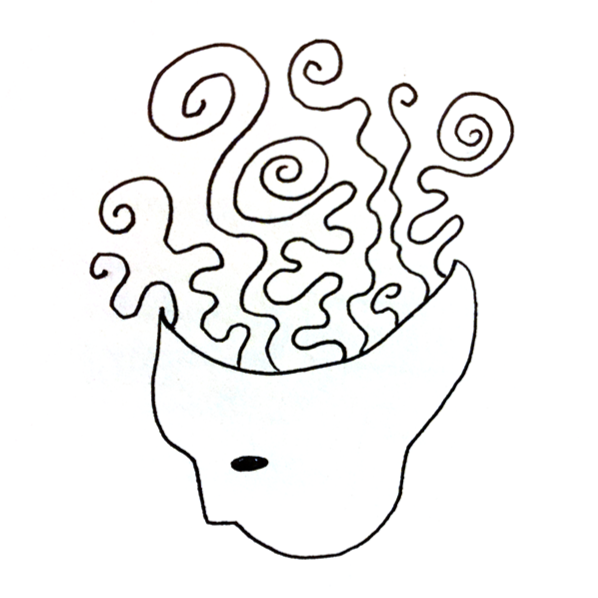Have you been feeling flat for a while now? Like life is just one long to-do list? Maybe you’ve lost motivation, things don’t feel fun anymore, and you’re not really interested in much. And yet, on the outside, you’re still doing it all: showing up to work, going to meetings, paying the bills, keeping everything moving. But inside, it feels heavy, like you’re dragging yourself through every day.
If this rings true, you might be dealing with something called High-functioning depression.
High-functioning depression is not currently considered a formal clinical diagnosis in the DSM, which is the diagnostic manual psychologists and psychiatrists used to officially diagnose mental health struggles. Increasingly, however, mental health professionals and clients alike find the concept of High-functioning depression captures what they are witnessing and experiencing. People who are struggling with this often appear to be doing OK to others because they continue to carry out most of the functions of their life. They are simultaneously experiencing symptoms of depression while carrying out the activities of their life. They are, nonetheless, suffering.
Typically, perhaps stereotypically, we think of depression as being characterized by somebody who is sad all the time, or who can't get out of bed, and can't function and carry on with the tasks of their life. But depression can show up in many other ways. It's helpful to expand our awareness of what constitutes depression.
High-functioning depression can be thought of as persistent, low mood, usually characterized by low energy, feeling flat, and not enjoying activities one usually enjoys. With High-functioning depression, people typically can and do continue functioning and appearing to show up for their responsibilities, but often they do not feel engaged or enjoyment while doing them.
High-functioning depression may sometimes align with a condition that IS a formal clinical diagnosis: dysthymia, also known as Persistent Depressive Disorder (PDD). One thing that sets High-functioning depression apart from Major Depressive Disorder is that there is a big discrepancy between what might be observable to others and the internal experience of the suffering person. A person with High-functioning depression may still be successful in their job, engaged in their relationship, get good grades, and generally appear to behave normally. On the inside, however, the person experiencing High-functioning depression may feel like life is a grind, have a sense of pointlessness, experience low energy, and find it difficult to feel joy or engagement. It can be like walking through life wearing a hundred-pound weighted vest that you can't take off. You can still move and do things, but everything requires way more effort. Everything feels heavy. It takes effort to wear the mask of being OK when you are actually not OK.
Key Characteristics:
Consistent low mood (but not extreme, but sometimes dipping to more extreme lows)
Fatigue or low energy, even when well-rested
Negative self-talk, a mean inner voice, or low self-esteem
Difficulty experiencing joy
Things feel dull or flat
Poor concentration or difficulty focussing
Feelings of guilt or inadequacy
Changes in sleep (too much or too little)
Changes in appetite (over or under eating)
Irritability or emotional numbness
Social withdrawal (even if still socially active)
Having a persistent feeling of sadness or emptiness
Feeling hopeless or pessimistic
Feeling guilty or worthless
Feeling irritable or anxious
Losing interest in everything, including activities that typically held one's interest
Talking or moving slowly, feeling heavy
Having trouble focusing, remembering, or making decisions
Experiencing changes in appetite and weight
Thinking about death, self-harm, or suicide
Experiencing physical symptoms such as headaches, cramps, aches and pains, and digestive issues that don’t have a clear cause and don’t get better with treatment
Increased isolation
Leaning on numbing substances (alcohol, THC, shopping, social media, workaholism, or other addictive substances)
Feeling alone, even when with other people
Frequent anger
Why is high-functioning depression difficult to notice?
They may appear functional to others, often maintaining good grades and being successful at good jobs regardless of High-functioning depression
They may not recognize their symptoms as symptoms of something like High-functioning depression
Sometimes people have been experiencing High-functioning depression for so long that they mistake their low state for who they are, as an aspect of their personality: a personality trait. Example: I am a very serious type. They are prickly personality. They are just emo.
Things in their life don't become extreme enough to be a clear need for help, therefore can continue struggling for a long time, not realizing they could benefit from treatment and possibly feel significantly better.
Stigma about being labelled as someone who has depression may prevent people from recognizing depression in themselves, and from receiving helpful treatment.
What risks does high functioning depression bring:
High-functioning depression can turn into more serious, disruptive, painful forms of depression like MDD
Ongoing psychological pain
One may believe there's something bad or flawed about them, rather than experiencing treatable symptoms
One may be less likely to receive treatment that could help them feel better, which can turn into years of feeling flat or miserable
One is more likely to experience burnout
One may develop an extremely mean and unhelpful inner voice
Increased isolation and loneliness
High functioning depression can negatively impact important relationships
What are some of the treatment and recovery activities that may help improve symptoms?
Psychotherapy, especially counselling approaches that include learning to manage one's mind, learning about one's specific needs and values, learning about the impact of early experiences, boundaries.
Lifestyle changes: sleep, exercise, nutrition, social connection, self care, time in nature
Medication (such as SSRIs) if appropriate
Mindfulness and self-compassion practices
Nourishing supportive relationships that allow for vulnerability and connection.
Increasing self-awareness and care for one's self
One of the most unfortunate aspects of High-functioning depression is that the people experiencing it often do not recognize it as such. They may think: "this is just the way life is, this is just the way I am, and how I feel is unchangeable". As a result, they may suffer for many years not realizing that this often is a changeable, treatable mental health condition that many people experience and recover from.
One of the fortunate aspects about High-functioning depression is that with this form of depression the suffering person often has the ability to take action once they recognize it because they are already in action. The challenging part is for them to recognize it, take it seriously, and decide to take action. No one can work on something that they are not aware of.
Once they have framed their experience as High-functioning depression, I have witnessed numerous clients actively engage in therapy, improve the pillars of their mental health, learn more about this type of mental health struggle, and their improve their own self-care leading them to feel much better, be more engaged in their lives, and know themselves more deeply.
If you or someone you know might be suffering from these kinds of symptoms, consider learning more about High-functioning Depression and reaching out for help and resources.
Online Articles & Resources
Amatenstein, S. (2022, November 8). High‑functioning depression: An invisible illness with unique risks. HealthCentral. headsupguys.org+6healthcentral.com+6verywellmind.com+6
HeadsUpGuys Team. (2024, September 9). What is high‑functioning depression? HeadsUpGuys. pmc.ncbi.nlm.nih.gov+11headsupguys.org+11popsugar.com+11
Reiss, J. (2020, March 2). High performers get depression too. Greatist. greatist.com
Verywell Mind. (n.d.). Can you have “high‑functioning” depression? Verywell Mind. verywellmind.com
APA Reference List:
Alloy, L. B., Abramson, L. Y., & Metalsky, G. I. (1979). Depressive realism and the hopelessness theory of depression.
Judd, L. L., Akiskal, H. S., Maser, J. D., et al. (1998). A prospective twelve‑year study of subsyndromal and syndromal depressive symptoms in unipolar major depressive disorders. Archives of General Psychiatry, 55, 694‑700.
Klein, D. N., Shankman, S. A., & Rose, S. (2006). Ten‑year prospective follow‑up study of the naturalistic course of dysthymic disorder and double depression. American Journal of Psychiatry, 163(5), 872‑880.
Parker, G., & Malhi, G. S. (2019). Persistent depressive disorder: Should such a DSM‑5 diagnostic category persist? Canadian Journal of Psychiatry, 64(1), 5‑10.
Klein, D. N. (2020). Persistent depressive disorder: Commentary on Parker and Malhi. Canadian Journal of Psychiatry, 65(1), 16‑18.
Sang, W., Li, Y., Su, L., et al. (2011). A comparison of the clinical characteristics of Chinese patients with recurrent major depressive disorder with and without dysthymia. Journal of Affective Disorders, 135(1‑3), 106‑110.
Burns, D. D. (1980). Feeling Good: The New Mood Therapy. William Morrow.
Solomon, A. (2001). The Noonday Demon: An Atlas of Depression. Simon & Schuster.
Styron, W. (1990). Darkness Visible: A Memoir of Madness. Random House.
Jamison, K. R. (1995). An Unquiet Mind: A Memoir of Moods and Madness. Alfred A. Knopf.
Jamison, K. R., & Goodwin, F. K. (1990). Manic‑Depressive Illness. Oxford University Press.
Amatenstein, S. (2022, November 8). High‑functioning depression: An invisible illness with unique risks. HealthCentral.
HeadsUpGuys Team. (2024, September 9). What is high‑functioning depression? HeadsUpGuys.
Reiss, J. (2020, March 2). High performers get depression too. Greatist.
Verywell Mind. (n.d.). Can you have “high‑functioning” depression? Verywell Mind.
References
Medical News Today. (2020, June 9). What is high functioning depression? https://www.medicalnewstoday.com/articles/high-functioning-depression#definition
Hirschfeld, R., Montgomery, S., Keller, M., Kasper, S., Schatzberg, A., Moller, H., Healy, D., Baldwin, D., Humble, M., Versiani, M., Montenegro, R., & Bourgeois, M. (2000). Social functioning in depression: A review. The Journal of Clinical Psychiatry, 61(4), 68-75. https://www.psychiatrist.com/jcp/depression/social-functioning-depression-review/
Forbes. (2022, June 27). High-functioning anxiety: What it is, symptoms and treatment.Forbes health. https://www.forbes.com/health/mind/what-is-high-functioning-anxiety/
WebMD. (2020, September 27). Dysthymia (mild, chronic depression). https://www.webmd.com/depression/guide/chronic-depression-dysthymia
Johns Hopkins. (n.d.). Dysthymia.Hopkins medicine. https://www.hopkinsmedicine.org/health/conditions-and-diseases/dysthymia

